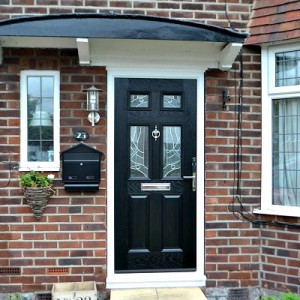
Insulation plays a pivotal role in the quest for a comfortable and cost-efficient home. The right insulation can be a homeowner’s unsung hero, from keeping the interior cozy to reducing noise and energy bills. One type of insulation rising in popularity is spray foam, known for effectively sealing nooks and crannies.
But what exactly is spray foam insulation, and why should you consider it for your home? Let’s take a deeper look into the application, types, benefits, and considerations of this modern insulation solution, providing you with all the information you need to make an informed decision for your next home improvement project.
What is Spray Foam Insulation?
Spray foam insulation is a versatile material that acts as an effective thermal barrier. It expands upon application to fill cavities and cracks, creating an airtight seal. This seal prevents air and moisture infiltration, maintains consistent indoor temperatures, and lowers heating and cooling costs.
As a homeowner, understanding the characteristics and benefits of spray foam insulation can help you make a sound investment in the comfort and sustainability of your home.
Benefits of Spray Foam Insulation
The benefits of spray foam insulation are manifold, making it an attractive option for homeowners.
Energy Efficiency
Spray foam insulation, when correctly installed, can significantly reduce energy consumption. The airtight seal created by spray foam effectively prevents air from escaping and entering, so your HVAC system can operate more efficiently, saving you money on energy bills.
Cost Savings
While the upfront cost of spray foam insulation may be higher than traditional types, the long-term savings can be substantial. Improved energy efficiency translates to lower monthly utility bills and a comparatively quick return on investment—you can learn more about the cost-efficiency of foam insulation from a professional installer.
Air and Moisture Barrier
Spray foam also acts as a barrier against air and moisture, which can prevent issues such as mold growth and structural damage. Minimizing the risk of moisture buildup within the insulation also ensures its effectiveness over the long term.
Noise Reduction
In addition to temperature control, spray foam can also dampen sound, making it an effective solution for reducing noise transfer between rooms and from the external environment.
Types of Spray Foam Insulation
There are two primary types of spray foam insulation: open-cell and closed-cell, each with its own set of advantages and applications.
- Open-Cell Foam — This type of spray foam is lighter and more flexible, making it a good option for soundproofing. It is more permeable to water vapor and has a lower R-value per inch than closed-cell foam. Open-cell foam is often used in interior applications.
- Closed-Cell Foam — Closed-cell foam is denser and has a higher R-value per inch. It provides a stronger barrier against moisture and is often used in exterior applications and areas prone to flooding or water exposure.
Common Applications of Spray Foam Insulation
Understanding where and how to use spray foam insulation is key to maximizing its benefits in your home. Here are some common areas where spray foam can be particularly effective.
Attics
Spray foam can be applied to the underside of the roof deck to create a conditioned attic space. This can prevent hot or cold air from entering directly into your living areas, as well as protect your attic from moisture.
Walls
The expansion properties of spray foam make it an excellent choice for wall cavities, where it can effectively seal off air leaks, electrical boxes, and other potential pathways for energy loss.

Basements
Basements are prone to moisture, and the closed-cell nature of certain spray foams makes them ideal for this application. Not only does the insulation help regulate the indoor climate, but it also protects against dampness and flooding.
Considerations for Homeowners
While spray foam insulation offers compelling benefits, there are several factors homeowners need to consider before making a decision.
Cost
The spray foam insulation cost is higher than traditional options like fiberglass or cellulose. However, when factoring in the long-term energy savings and the potential lifespan of the material, the investment can be more cost-effective over time.
Longevity
When professionally installed, spray foam insulation can last for the life of your home. It does not sag or settle over time, maintaining its integrity and insulation properties.
Maintenance
Unlike some other insulation types, spray foam does not require maintenance. Once installed, it should remain effective without the need for replacement or adjustment.
Professional Installation is Key
While spray foam insulation can be appealing for its DIY potential, professional installation is critical. Proper training and experience are necessary to safely handle spray foam equipment and ensure thorough and uniform coverage in insulation applications.
Choose a Reputable Installer
When looking for a professional to install spray foam insulation, it is essential to do your research. Look for a company with a solid track record, positive customer reviews, and relevant certifications.
Safety Precautions
One of the biggest advantages of professional installation is the adherence to safety guidelines. This includes using the appropriate protective equipment and ensuring the area is well-ventilated during and after installation.
Building Codes and Regulations
Local building codes may impact the type and application of spray foam insulation. A professional installer will be well-versed in these regulations and can help you navigate any necessary permits and inspections.
Conclusion
Spray foam insulation offers a range of benefits that can enhance your home’s comfort and efficiency. By understanding the different types of spray foam, their applications, and the considerations for installation, you can make an informed decision about whether it’s the right choice for you. For the most reliable and effective results, always opt for professional installation.
© Copyright 2024 Antonia, All rights Reserved. Written For: Tidylife


Leave a Reply